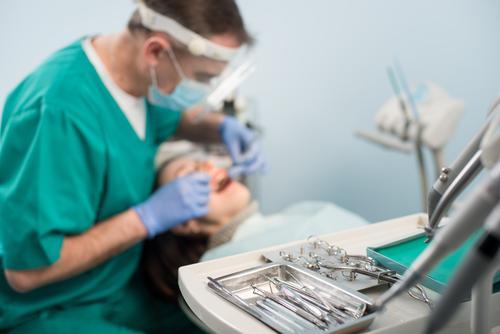Wisdom teeth extraction is one of the more common milestones for people in their teens and early 20s, becoming almost a rite of passage for many young adults.
But older adults also have their wisdom teeth extracted, usually because of bothersome symptoms or to prevent more serious problems from developing. Still, not everyone needs to have their wisdom teeth extracted. The key is determining if it makes sense for you.
At Trident Dental, we help our patients in Houston, Texas, decide if removing their wisdom teeth would be beneficial for their oral health and their overall health and well-being.
When removing your wisdom teeth is the right option, we use state-of-the-art techniques to make the procedure and the recovery as comfortable and straightforward as possible.
Here’s what you should know about wisdom teeth extraction and whether it might help improve your oral health.
Wisdom teeth extractions: Why they make sense
The medical name for wisdom teeth is third molars, so-called because they’re the third molar to erupt. The nickname “wisdom teeth” came about because these teeth emerge later than all your other teeth, at a time when you’re probably “wiser” than you were as a child.
Eons ago, wisdom teeth played an important role in nutrition, grinding up plant material and raw meat. But today, they’ve become more or less obsolete as far as helping you get the nutrients you need for good health.
Overcrowding
Because they emerge so late, your other adult teeth are already in place by the time wisdom teeth erupt through the gums, which means there’s not much space for these latecomers.
Many wisdom teeth wind up coming in crooked or erupting through the sides of the gums. Others get completely or partially stuck or impacted beneath neighboring teeth.
In these instances, wisdom teeth can cause a lot of pain and swelling, along with an increased risk of infection. Impacted teeth can also weaken neighboring teeth as they push against the roots, which means you could be at an increased risk of tooth loss in the future.
Even if your wisdom teeth aren’t causing pain, swelling, and related problems now, there’s a much greater chance an impacted tooth will cause problems later.
Having your wisdom teeth removed before those issues occur can not only prevent painful symptoms, but also help you maintain optimal oral health — even if you’re not having symptoms right now.
Location
But what if your wisdom teeth come in straight without getting trapped under neighboring teeth? Does it still make sense to have them taken out? Often the answer is yes.
Your wisdom teeth are located far back in your jaw, near the jaw joint. Because of their location, these teeth are notoriously hard to keep clean, and that means they can wind up harboring a lot of harmful bacteria.
Over time, the bacteria can invade your gums and travel down to the root pockets, causing gum disease and decay, not just in your wisdom teeth, but in neighboring teeth and your jawbone, too.
Having your wisdom teeth removed means you can avoid these problems and enjoy better oral health now and as you get older.
Wisdom teeth and your oral health
Wisdom teeth symptoms and problems often don’t become evident until you’re older. Just because you’re not having problems now, that doesn’t mean you won’t have them in the future.
The only real way to know if extraction makes sense is to schedule an office visit at Trident Dental, so you can weigh the pros and cons and make an informed decision based on your unique needs.
Take the next step toward a lifetime of better oral health. Call us at 281-975-4942 or use our online tool today to request an appointment.

